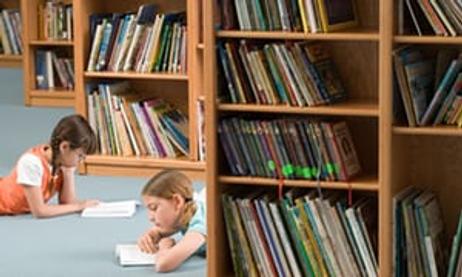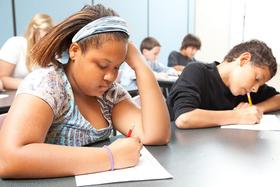Book banning is an age-old concept that is nearly always met with a public outcry. That is certainly the case in two areas of the country today, where schools that have banned specific books from the classroom have been met with plenty of resistance from parents and educators. The ACLU has even involved itself in one of the situations, with a goal of protecting the civil rights of teachers and students. Is book banning appropriate in certain situations? We’ll take a look at what those involved are saying about the recent proposals to ban some pieces of literature from the classroom.
Arizona Ethnic Study Ban Includes Works by Shakespeare
Two years ago, Arizona instituted a law banning ethnic studies, a move that made headlines and ruffled many feathers in the world of education. According to a report at the Wall Street Journal, one high school teacher recently discovered that the ban includes “The Tempest” by William Shakespeare. The teacher had requested to begin teaching from the work but was told he would not be able to do so.
The now-former Arizona teacher, Curtis Acosta, wrote in a statement printed at the Wall Street Journal, “I asked if I could start teaching Shakespeare’s ‘The Tempest, and was told no, due to the themes that are present and the likelihood of avoiding discussions of colonization, enslavement, and racism were remote.”
The new Arizona law prohibits any type of course or class that “promotes the overthrow of the United States government, promotes resentment toward a race or class of people, are designed primarily for pupils of a particular ethnic group or advocate ethnic solidarity instead of the treatment of people as individuals.” In light of the law, an Arizona court recently ruled in favor of the ban of Shakespeare's time-tested work.
However, Shakespeare was not the only author on the chopping block of the ethnic studies ban. Other works like "Rethinking Columbus," "Pedagogy of the Oppressed, and "Occupied America: A History of Chicanos" have also been banned, despite their use in classrooms for decades as fact-based textbooks, according to Salon.
This video reports on banned books in Arizona.
Books Come Under Review in Detroit
Arizona is not the only state considering book bans today. In the suburbs of Detroit, two books have come under fire as literature “inappropriate” for a high school classroom. As a result of complaints by parents, the books are now under review by the Michigan school district, which will decide if allegations of graphic sexual content and violence are enough to warrant a complete ban of these books throughout the district.
Last month, “Waterland” by Graham Swift and “Beloved” by Toni Morrison were removed from the shelves of Plymouth-Canton Community Schools, pending review by the district. According to a report at the News-Herald, the books were flagged for removal after parents complained about the books being used in the classroom. A review of “Beloved was recently completed by a district committee, and a decision on “Waterland” is expected in the next few weeks.
This television news video reports on banned books in the Detroit Public Schools.
Parents Cite Too Much Sex, Violence
The two parents that raised concerns about the use of “Beloved” in an AP English classroom stated that the book contained graphic sexual content, infanticide, and discussions about ghosts that they believed were inappropriate for high school readers. The parents, Matt and Barb Dame asked the school to remove the book from the reading list for the classroom. The couple also challenged “Waterland,” according to the Plymouth Patch. “Waterland” was immediately removed from the classroom, while “Beloved” continued to be taught, pending the outcome of the review.
Parents came out in droves to voice their opinions to the committee during the review process, and many were in favor of leaving the books in the classrooms.
“I am adamantly opposed to having great books pulled out of the hands of students who want to be academically challenged,” Christine Yancy, whose daughter is currently in the AP class, was reported saying in the Observer & Eccentric.
ACLU Gets Involved
The controversy in Detroit gained the attention of the ACLU, which wrote a letter to the school district opposing the ban. One of the spokesmen for the ACLU of Michigan’s Metro Detroit Branch, Loren Khogali, stated in the Detroit News that she was a student at Plymouth-Canton Community Schools, who also took the AP English class in high school.
“I know how valuable the class is,” Khogali told the Detroit News. “It’s really about not choking the academic freedom of teachers to present the curriculum they’ve been trained and hired to teach, and not choking the free-speech rights of students.”
Khogali also voiced her opposition to the ban to the News-Herald, saying, “It is alarming that a vocal minority has been successful in denying students these valuable works of literature. Shutting down ideas in the classroom not only raises constitutional concerns but goes against the very essence of our educational system. This incident is a stark reminder of the threats still facing educational freedom.”
In their letter to the Michigan school district, the ACLU wrote, “Removing the books would not only deny all AP English students the opportunity to read, debate and learn from these two critically acclaimed literary works, but it would send the message to students that censorship of ideas is permitted in our democracy. Such a lesson contradicts fundamental constitutional values of our country – values that public schools are designed to teach.”
The school district has not responded to the ACLU’s letter, stating that the review process is in place for books that are called into question. The committee assigned to review “Beloved” recently went public with their decision, stating at Michigan Radio that they have decided not to ban the book. A review of “Waterland” is still pending. Part of the delay on this particular review is the challenges the committee is facing in getting copies of the book to all of the committee members.
As long as there are books to be read, there will be someone attempting to ban titles of literature from the eyes of students. However, hopefully, the great works of literature will keep their rightful place on the shelves of high schools in America, even if they spark controversial debate.
Questions? Contact us on Facebook. @publicschoolreview















